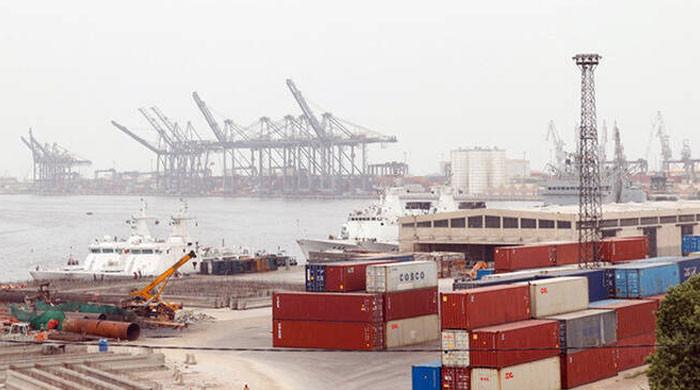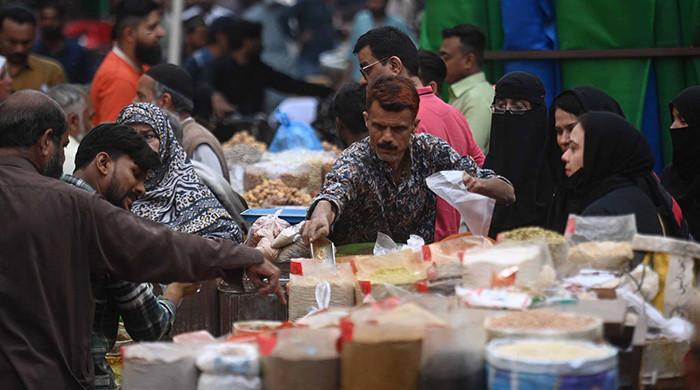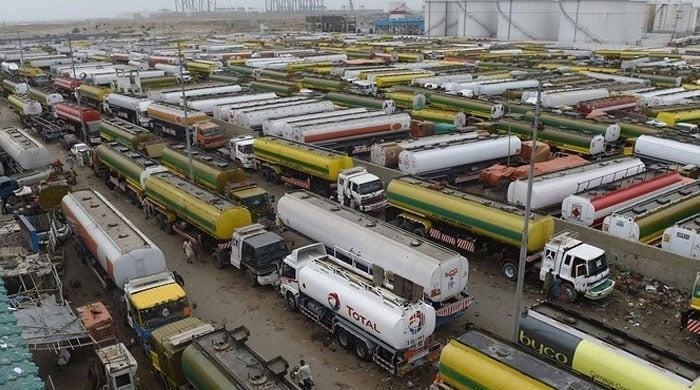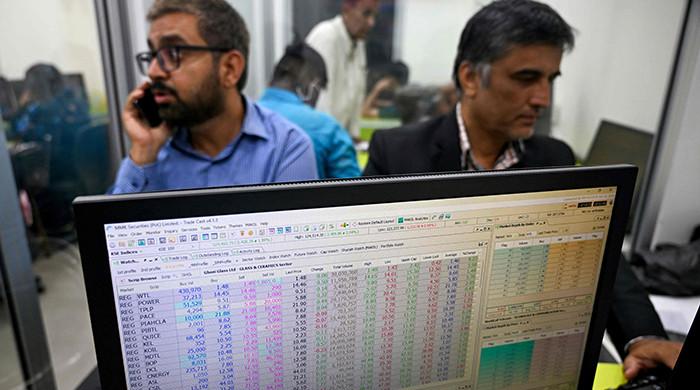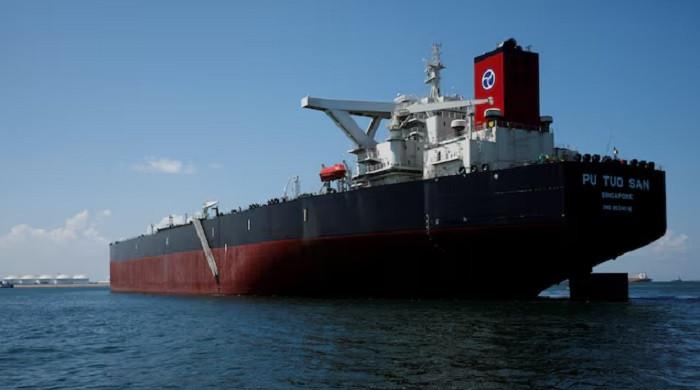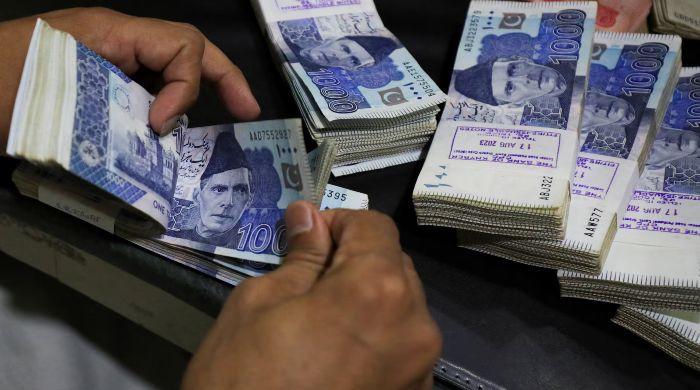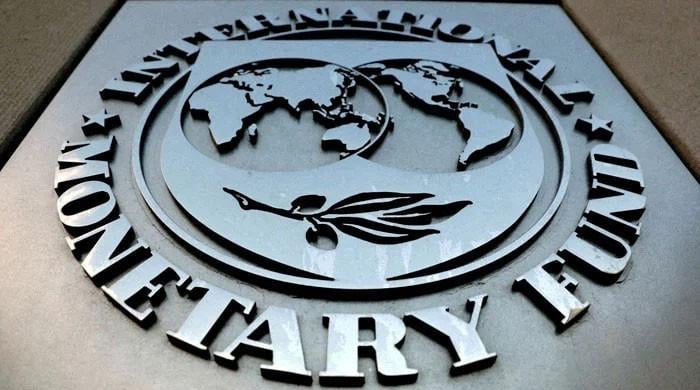Trade gap in Pakistan widens 12% to $3.64b in March
Indicates country's external account position worsening at alarming pace, Islamabad might plunge into balance of payment crisis, says report
April 17, 2022
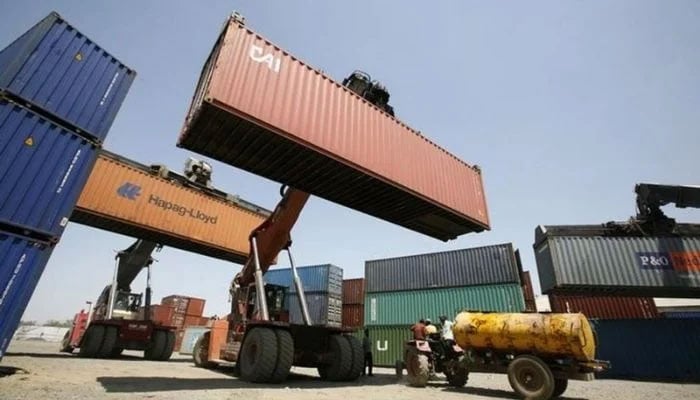
- Pakistan's trade gap rose by 12% to $3.64 billion in March 2022 as compared to the same month of last fiscal year.
- The total trade deficit escalated to $35.52b in first nine months of current fiscal year against $20.8b last fiscal year.
- The exports in March, 2022 were recorded at $2.782b as compared to $2.834b in February 2022, showing a decrease of 1.83%.
ISLAMABAD: Pakistan’s trade deficit widened by 12% to $3.64 billion in March 2022 as compared to the same month of the last fiscal year, data from the Pakistan Bureau of Statistics (PBS) showed Saturday.
The total trade deficit escalated to $35.52 billion in the first nine-month (July-March) period of the current fiscal year against $20.8 billion in the same period last fiscal year. In absolute terms, the trade deficit surged by over $15 billion, The News reported.
It indicates Pakistan's external account position has been worsening at an alarming pace and Islamabad might plunge into a balance of payment crisis in the weeks and months ahead, the publication reported.
There are now fears the current account deficit might inch closer to $1 billion for March 2022. This is likely happening at a time when State Bank of Pakistan’s (SBP) foreign exchange reserves have reduced to $10.8 billion (April 8, 2022).
The imports were increasing at an accelerated pace as they went up by almost 49.10% in the first nine months of the current fiscal year mainly because of the surge in petroleum and commodities prices. However, Pakistan’s dependence on agricultural commodities also increased import bills.
As per the PBS's data, based on the provisional figures of imports and exports, the balance of trade in March 2022 was $3.64 billion. The balance of trade figures cumulative from July-March 2021–2022 were $35.522 billion.
In terms of US dollars, the exports in March, 2022 were recorded at $2.782 billion as compared to $2.834 billion in February 2022, showing a decrease of 1.83%, but increased by 17.68% as compared to $2.364 billion in March 2021. The exports during July–March FY2022 fetched a total $23.255 billion against $18.687 billion in the same period last year, an increase of 24.98%.
Imports stood at $6.425 billion in March 2022 as compared to $5.853 billion in February, 2022 showing a rise of 9.77% and by 14.10% as compared to $5.631 billion in March 2021.
In terms of US dollars, the imports during July–March FY2022 totalled $58.877 billion as against $39.489 billion in the same period last year, up 49.10%.
Dr Khaqan Najeeb, former Director General Economic Reform Unit at Ministry of Finance, said external trade numbers for the nine months of FY22 were indeed concerning with a trade deficit of $3.64 billion during March 2022, registering a sharp increase of 12% year-on-year and 21% month-on-month.
The cumulative 9MFY22 trade deficit has risen to $ 35.52 billion versus $20.80 billion in the same period of the last year. The high-income elasticity of demand for imports, creates a huge trade deficit. The increased dependency on imported energy and global rise in commodity prices has increased external account difficulties.
“It is extremely concerning that Pakistan’s exports as a share of GDP fell from 16% in the late 1990s to just above 10% currently. An analysis of the past two decades shows exports have remained low as a percentage of GDP and the growth rate very small,” Dr Khaqan said.
“Export fundamentals are in dire need of correction. Businesses are less incentivised. Not enough to enter the export market. Low productivity and little diversification continue to be perennial unsolved issues. Thus, weaknesses in exports need a structural correction.”
He said Pakistan’s export competitiveness needed a tariff rationalisation strategy and financing for expansion in production.
“The real hard work is to upgrade the productivity of businesses as well as their innovative capacity,” the economist said.
He said these were the changes needed to integrate with the world and achieve long-term external account stability.
“A serious analysis of the trade gap is required. The real challenge with the trade deficit is the low export receipts,” Dr Khaqan concluded.




